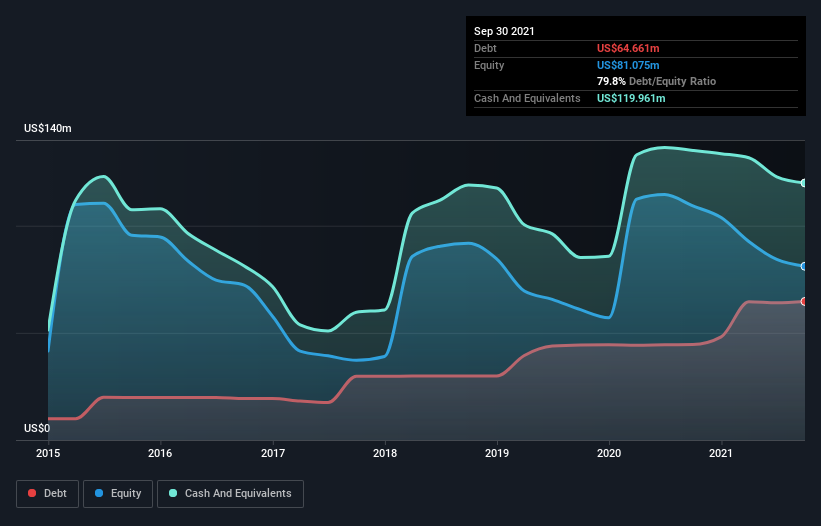Is Cerus (NASDAQ:CERS) Using Too Much Debt?
Some say volatility, rather than debt, is the best way to think about risk as an investor, but Warren Buffett famously said that 'Volatility is far from synonymous with risk.' It's only natural to consider a company's balance sheet when you examine how risky it is, since debt is often involved when a business collapses. We note that Cerus Corporation (NASDAQ:CERS) does have debt on its balance sheet. But is this debt a concern to shareholders?
What Risk Does Debt Bring?
Debt is a tool to help businesses grow, but if a business is incapable of paying off its lenders, then it exists at their mercy. In the worst case scenario, a company can go bankrupt if it cannot pay its creditors. While that is not too common, we often do see indebted companies permanently diluting shareholders because lenders force them to raise capital at a distressed price. Having said that, the most common situation is where a company manages its debt reasonably well - and to its own advantage. The first step when considering a company's debt levels is to consider its cash and debt together.
See our latest analysis for Cerus
What Is Cerus's Debt?
The image below, which you can click on for greater detail, shows that at September 2021 Cerus had debt of US$64.7m, up from US$44.5m in one year. However, its balance sheet shows it holds US$120.0m in cash, so it actually has US$55.3m net cash.
How Healthy Is Cerus' Balance Sheet?
The latest balance sheet data shows that Cerus had liabilities of US$64.7m due within a year, and liabilities of US$73.2m falling due after that. Offsetting this, it had US$120.0m in cash and US$25.1m in receivables that were due within 12 months. So it can boast US$7.19m more liquid assets than total liabilities.
This state of affairs indicates that Cerus' balance sheet looks quite solid, as its total liabilities are just about equal to its liquid assets. So it's very unlikely that the US$1.14b company is short on cash, but still worth keeping an eye on the balance sheet. Succinctly put, Cerus boasts net cash, so it's fair to say it does not have a heavy debt load! When analysing debt levels, the balance sheet is the obvious place to start. But ultimately the future profitability of the business will decide if Cerus can strengthen its balance sheet over time. So if you're focused on the future you can check out this free report showing analyst profit forecasts.
Over 12 months, Cerus reported revenue of US$119m, which is a gain of 41%, although it did not report any earnings before interest and tax. Shareholders probably have their fingers crossed that it can grow its way to profits.
So How Risky Is Cerus?
Statistically speaking companies that lose money are riskier than those that make money. And we do note that Cerus had an earnings before interest and tax (EBIT) loss, over the last year. Indeed, in that time it burnt through US$41m of cash and made a loss of US$60m. But at least it has US$55.3m on the balance sheet to spend on growth, near-term. With very solid revenue growth in the last year, Cerus may be on a path to profitability. By investing before those profits, shareholders take on more risk in the hope of bigger rewards. There's no doubt that we learn most about debt from the balance sheet. However, not all investment risk resides within the balance sheet - far from it. For example, we've discovered 2 warning signs for Cerus that you should be aware of before investing here.
When all is said and done, sometimes its easier to focus on companies that don't even need debt. Readers can access a list of growth stocks with zero net debt 100% free, right now.
Have feedback on this article? Concerned about the content? Get in touch with us directly. Alternatively, email editorial-team (at) simplywallst.com.
This article by Simply Wall St is general in nature. We provide commentary based on historical data and analyst forecasts only using an unbiased methodology and our articles are not intended to be financial advice. It does not constitute a recommendation to buy or sell any stock, and does not take account of your objectives, or your financial situation. We aim to bring you long-term focused analysis driven by fundamental data. Note that our analysis may not factor in the latest price-sensitive company announcements or qualitative material. Simply Wall St has no position in any stocks mentioned.

